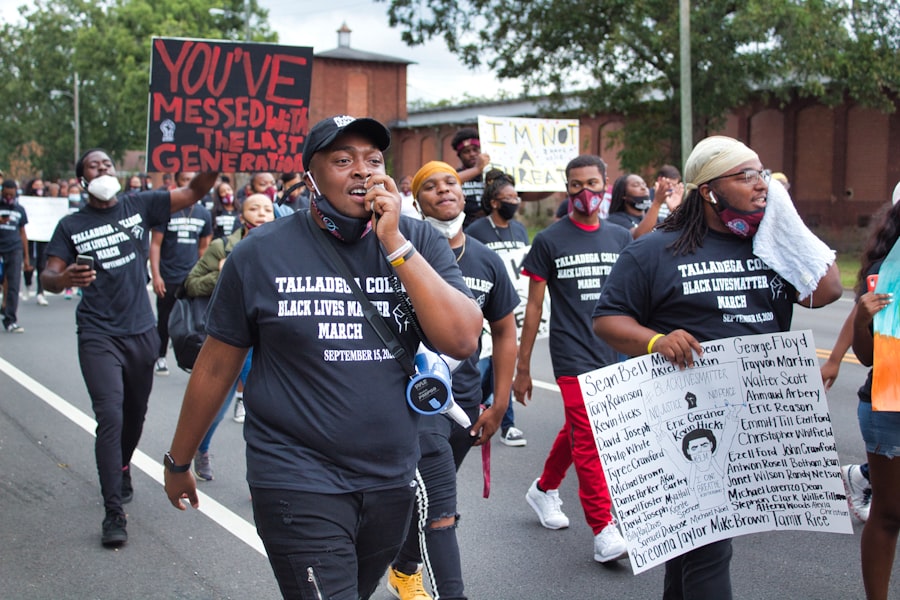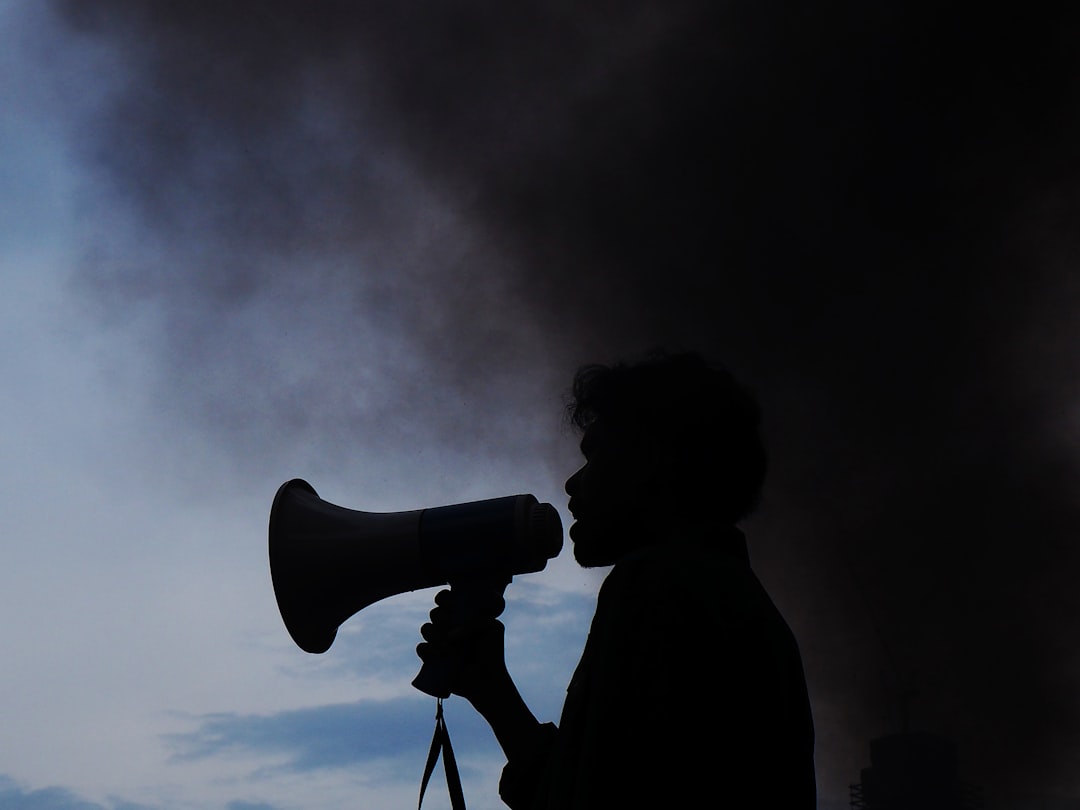As you delve into the world of voice over, you may find yourself captivated by the rapid advancements in artificial intelligence (AI) technology. AI has begun to revolutionize various industries, and voice over is no exception. The integration of AI into this field has opened up new possibilities, transforming how voice work is produced, delivered, and consumed.
From automated voice generation to sophisticated editing tools, AI is reshaping the landscape of voice over, making it more accessible and efficient than ever before. You might wonder how this technology works and what it means for the future of voice over. AI-driven tools can analyze vast amounts of data to create lifelike voice simulations that can mimic human speech patterns, intonations, and emotions.
This capability not only enhances the quality of voice over work but also allows for quicker turnaround times and reduced costs. As you explore this topic further, you’ll discover both the opportunities and challenges that come with the rise of AI in the voice over industry.
Key Takeaways
- AI in voice over is revolutionizing the industry by providing efficient and cost-effective solutions for creating high-quality voice content.
- Traditional voice over jobs are being impacted by AI, leading to concerns about job displacement and the need for new skill sets.
- Advantages of AI in voice over include increased productivity, consistency in performance, and the ability to work across multiple languages and accents, while disadvantages include the potential loss of human touch and job displacement.
- AI is playing a significant role in the voice over industry by automating tasks, improving speech synthesis, and enhancing the overall production process.
- The rise of AI voice over technology is reshaping the landscape of the industry, leading to new opportunities and challenges for voice over artists and professionals.
- AI is changing the voice over landscape by offering innovative tools and technologies that are transforming the way voice content is created and delivered.
- The future of voice over jobs in the age of AI is uncertain, with the potential for job displacement and the need for voice over artists to adapt to new technologies and market demands.
- The evolution of voice over with AI integration is leading to a shift in the industry, with new ethical and moral implications arising from the use of AI in voice content creation.
- Voice over artists can adapt to the rise of AI by embracing new technologies, honing their skills, and exploring new opportunities for collaboration and creativity.
- Embracing the future of voice over with AI requires a balance between leveraging the benefits of AI technology and preserving the unique qualities of human voice and expression in the industry.
The Impact of AI on Traditional Voice Over Jobs
The emergence of AI in voice over has undoubtedly made waves in traditional job roles within the industry. You may notice that many companies are now opting for AI-generated voices for projects that once required human talent. This shift can lead to a reduction in demand for traditional voice over artists, as businesses seek cost-effective solutions that AI can provide.
The convenience and efficiency of AI-generated voices can be appealing, especially for projects with tight deadlines or limited budgets. However, it’s essential to recognize that while AI may replace some roles, it also creates new opportunities. As you navigate this evolving landscape, you might find that the demand for skilled voice over artists who can bring a unique emotional depth and authenticity to their work remains strong.
The human touch is irreplaceable in many contexts, particularly in areas such as storytelling, character work, and nuanced performances. Thus, while AI may disrupt traditional roles, it also paves the way for a new era where human creativity and AI technology can coexist.
Advantages and Disadvantages of AI in Voice Over

As you consider the implications of AI in voice over, it’s crucial to weigh both its advantages and disadvantages. On one hand, AI offers remarkable benefits such as efficiency, cost-effectiveness, and scalability. You may appreciate how AI-generated voices can be produced quickly and at a fraction of the cost of hiring a professional voice artist.
This accessibility allows businesses of all sizes to incorporate high-quality voice over into their projects without breaking the bank. On the other hand, there are significant drawbacks to consider. One major concern is the potential loss of jobs for traditional voice over artists as companies increasingly turn to AI solutions.
Additionally, while AI can produce impressive results, it often lacks the emotional nuance and authenticity that only a human voice can convey. You might find that certain projects require a level of empathy and connection that AI simply cannot replicate. As you reflect on these pros and cons, you’ll gain a deeper understanding of the complex relationship between AI and the voice over industry.
The Role of AI in Voice Over Industry
| Metrics | Data |
|---|---|
| Number of AI voice over applications | Increasing |
| Accuracy of AI voice generation | Improving |
| Percentage of voice over work done by AI | Growing |
| Impact on traditional voice over industry | Significant |
AI’s role in the voice over industry is multifaceted and continues to evolve as technology advances. You may observe that AI is not just about generating voices; it also encompasses tools for script analysis, audio editing, and even performance enhancement. These innovations can streamline workflows for voice over artists, allowing them to focus on their craft rather than getting bogged down by technical details.
Moreover, AI can assist in creating personalized experiences for audiences. For instance, you might encounter applications where AI-generated voices are tailored to specific demographics or preferences, enhancing user engagement. This level of customization can be particularly beneficial in fields like gaming or interactive media, where character voices need to resonate with diverse audiences.
As you explore these developments, you’ll see how AI is becoming an integral part of the creative process in voice over.
The Rise of AI Voice Over Technology
The rise of AI voice over technology has been nothing short of remarkable. You may have noticed an increasing number of platforms offering AI-generated voices that sound strikingly human-like. These advancements are largely due to breakthroughs in machine learning and natural language processing, which enable computers to analyze speech patterns and generate realistic audio outputs.
As a result, you might find yourself impressed by the quality of AI-generated voices that can now be used in various applications. This technology is not limited to just one genre or style; it spans across multiple languages and accents, making it a versatile tool for global communication. You could see how businesses are leveraging this technology to reach wider audiences without the need for extensive localization efforts.
However, as you explore this rise in technology, it’s essential to remain aware of its limitations and the importance of maintaining a balance between human artistry and machine efficiency.
How AI is Changing the Voice Over Landscape

AI is fundamentally changing the voice over landscape by introducing new workflows and methodologies that were previously unimaginable. You might find that traditional recording studios are adapting to incorporate AI tools into their processes, allowing for more efficient production cycles. For instance, automated editing software can help streamline post-production tasks, enabling voice artists to deliver polished work more quickly.
Additionally, you may notice that the barriers to entry for aspiring voice over artists are lowering due to the availability of affordable AI tools.
This democratization of technology could lead to a more diverse range of voices entering the industry, enriching the overall landscape.
The Future of Voice Over Jobs in the Age of AI
As you contemplate the future of voice over jobs in an age dominated by AI, it’s essential to consider how professionals can adapt to this changing environment. While some traditional roles may diminish, new opportunities will likely emerge as businesses seek unique voices that stand out amidst a sea of automated options. You might find that niche markets will develop where human talent is still highly valued for its creativity and emotional resonance.
Moreover, as technology continues to evolve, you could see an increasing demand for hybrid roles that combine human artistry with AI capabilities. Voice artists who embrace technology and learn how to work alongside AI tools will likely find themselves at an advantage in this new landscape. By staying informed about industry trends and honing your skills in both performance and technology, you can position yourself for success in an ever-changing job market.
The Evolution of Voice Over with AI Integration
The evolution of voice over with AI integration is a fascinating journey that reflects broader technological advancements. You may observe how early attempts at synthetic voices were often robotic and lacked emotional depth; however, recent developments have led to more sophisticated systems capable of producing nuanced performances. This evolution signifies not just a technological leap but also a shift in how audiences perceive and interact with voice content.
As you explore this evolution further, you’ll likely encounter examples where AI has been successfully integrated into creative projects alongside human talent. Collaborative efforts between voice artists and AI technologies can yield innovative results that push the boundaries of storytelling and engagement. This synergy between human creativity and machine efficiency could redefine what it means to be a voice artist in the modern age.
The Ethical and Moral Implications of AI in Voice Over
The rise of AI in voice over brings forth a host of ethical and moral implications that warrant careful consideration. You might find yourself grappling with questions about authenticity and ownership when it comes to AI-generated content. For instance, if an AI system creates a voiceover based on existing recordings or styles, who owns the rights to that output?
These questions highlight the need for clear guidelines and regulations within the industry. Additionally, there are concerns about potential misuse of AI technology in creating deepfakes or misleading content. As you navigate this complex landscape, it’s crucial to advocate for responsible use of AI tools while promoting transparency within the industry.
How Voice Over Artists Can Adapt to the Rise of AI
As a voice over artist facing the rise of AI technology, adapting to this new reality is essential for your continued success in the industry. One effective strategy is to embrace lifelong learning by staying updated on technological advancements and industry trends. You might consider taking courses or attending workshops focused on using AI tools effectively while honing your craft as a performer.
Networking with other professionals who are navigating similar challenges can also provide valuable insights and support. By collaborating with fellow artists or engaging with online communities dedicated to voice over work, you can share experiences and learn from one another’s successes and setbacks. This sense of community will not only help you adapt but also inspire you to innovate within your own practice.
Embracing the Future of Voice Over with AI
In conclusion, embracing the future of voice over with AI presents both challenges and opportunities for professionals in the field. As you reflect on the impact of this technology on traditional jobs, workflows, and ethical considerations, it’s clear that adaptability will be key to thriving in this evolving landscape. By recognizing the unique strengths that human talent brings to the table while leveraging the advantages offered by AI tools, you can carve out your niche in an increasingly competitive market.
Ultimately, the integration of AI into voice over is not about replacing human artists but rather enhancing their capabilities and expanding creative possibilities. As you move forward in your career, remember that embracing change while staying true to your artistic vision will empower you to navigate this exciting new era with confidence and creativity.
The rise of artificial intelligence in various industries has sparked discussions about its impact on traditional jobs, including those in the voice-over sector. As AI technology continues to advance, many voice-over artists are concerned about the potential for AI-generated voices to replace human talent. This topic is explored in depth in a related article on the implications of AI on employment. For more insights, you can read the article on How Wealth Grows, which delves into the broader economic effects of AI and automation on the workforce.
FAQs
What is AI?
AI, or artificial intelligence, refers to the simulation of human intelligence in machines that are programmed to think and act like humans. This includes tasks such as learning, problem-solving, and decision-making.
What are voice over jobs?
Voice over jobs involve the recording of spoken words to be used in various forms of media, such as commercials, films, television shows, and video games. Voice over artists use their voices to bring characters and narratives to life.
Is AI taking over voice over jobs?
AI technology has advanced to the point where it can mimic human voices with remarkable accuracy. This has led to concerns about AI taking over voice over jobs in the future.
How is AI impacting the voice over industry?
AI technology has the potential to automate the process of generating voice overs, which could lead to a decrease in demand for human voice over artists. Some companies are already using AI-generated voices for certain projects.
What are the advantages of AI in voice over jobs?
AI technology can provide cost-effective and efficient solutions for generating voice overs. It can also offer a wide range of voice options and languages, making it easier to cater to diverse audiences.
What are the disadvantages of AI in voice over jobs?
The use of AI in voice over jobs raises concerns about job displacement for human voice over artists. AI-generated voices may also lack the emotional depth and nuance that human voices can convey.
What is the future of voice over jobs in relation to AI?
The future of voice over jobs in relation to AI is uncertain. While AI technology has the potential to streamline the voice over process, it also poses challenges for human voice over artists in terms of job security and competition.
